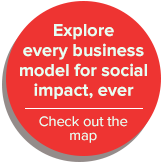 The following post is a transcript of an essay by Matthew Manos originally written in November, 2012 for Dowser & SocialChange.is.
The following post is a transcript of an essay by Matthew Manos originally written in November, 2012 for Dowser & SocialChange.is.
There had been a really popular article floating around on my twitter feed called “6 Things Silicon Valley Can Teach Social Entrepreneurs.” After reading it, I was like: “Awesome!” I liked it. But then I realized one major component was left out—a big thing, the one thing that Silicon Valley definitely cannot teach Social Entrepreneurs: legacy.
I live in Los Angeles, but don’t call me an outsider—I grew up in the heart of Silicon Valley. Everyone and their mother (literally) was an entrepreneur growing up, but here is the thing—Silicon Valley has changed. We all have noticed it, and it’s been happening for years, but ever since Facebook bought Instagram, the issues have heightened. Much of the mentality of Silicon Valley founders is not longevity. It is acquisition. More and more we are seeing companies arise that I like to call “feature companies.” These are companies that dig deep into existing platforms (like Facebook, Twitter, Google, etc.) in order to find one missing piece. Once they find that missing piece, or “feature,” they capitalize on it, basing their entire company around building that feature in order to roll the dice and hopefully be acquired. These startups, like Instagram, have no business plan. They have zero revenue (for the most part). They are perfectly fine with the potential of closing their doors in a year or two (funny what one billion dollars can do.) This mentality is really good if you want to be a gambler, but if you want to be a Social Entrepreneur, this mentality is very counterintuitive.
[slogen_shortcode_1]
We are all given a short time, and I think the biggest mistake a lot of entrepreneurs make is that they design and optimize their vision to provide the largest financial return possible. Now, making money is not a bad thing, but what should be known and understood, is that in the end, our salaries, the cars we drive, the square footage of our homes … none of that matters. What matters is the legacy that our business and our vision can leave behind—a legacy that has the ability to shape, disrupt, or destroy, a familiar system. When you disrupt a familiar system, you change perspective–—you change the way a community can define themselves to inspire future innovation.
The whole concept of acquisition cripples legacy. If you want to get out fast, it means you aren’t planning to stay long. If you aren’t planning to stay long, your impact will lose value and authenticity. When you are a Social Entrepreneur, there is no “exit.” You leave when the job is done-—you “exit” when the problem is solved.
